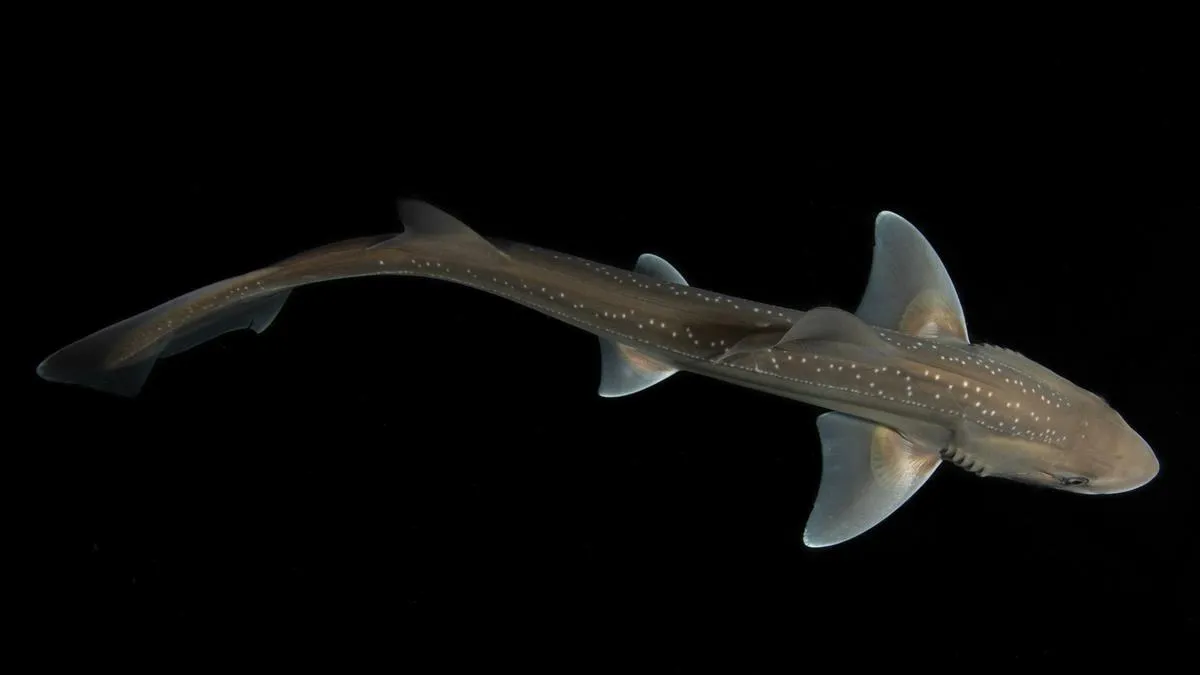
For years, it has been a common belief that sharks are mute creatures, relying on their stealth abilities to hunt for prey and evade threats. However, recent findings have challenged this long-held notion. A new study published on March 26 in the journal Royal Society Open Science reveals that rig sharks (Mustelus lenticulatus), small bottom-dwelling sharks native to New Zealand, are capable of producing sounds. These remarkable findings mark the first documented case of a shark actively making noise.
The study led by Carolin Nieder, a researcher at the Woods Hole Oceanographic Institution, details how rig sharks emit distinct clicks when handled underwater by researchers. These audible clicks were consistent and repeated among multiple individuals, suggesting a potential link to distress or defensive behavior. According to Nieder, while sharks possess advanced sensory systems, their ability to hear is not as developed as their electroreceptors and sense of smell. This leads to the conclusion that the previous assumption that sound is unimportant for sharks is likely incorrect.
During routine behavioral experiments at the University of Auckland's Leigh Marine Laboratory, researchers accidentally observed ten juvenile rig sharks producing sounds. Each shark emitted audible clicks when briefly handled underwater. Interestingly, the frequency of these clicks was highest during initial handling, diminishing as the experiments progressed. Nieder speculated that the sharks might have become less fearful, suggesting that in their natural habitat, these loud clicks could function as a distraction, enabling juvenile sharks to escape from predators.
Traditionally, it has been thought that most sharks are silent because they lack swim bladders—air-filled sacs that many fish use to produce sound. MicroCT scans and 3D reconstructions of rig sharks showed no significant sound-producing organs. The research team proposed that the sounds could originate from the sharks snapping their teeth. Rig sharks have broad, blunt teeth arranged in plate-like structures, ideal for crushing hard-shelled prey like crabs. This unique dental arrangement might also inadvertently create noise when the jaws snap shut, although Nieder noted that without direct observation of the jaws during the click production, this remains speculative.
The clicks emitted by the rig sharks lasted approximately 48 milliseconds, with volumes exceeding 155 decibels—comparable to a shotgun blast. About 75% of the clicks were single bursts, while the remaining were short double-clicks. Interestingly, the researchers noted that approximately 70% of these clicks occurred alongside calm, swaying body movements, while some clicks were produced without any visible motion.
Whether the clicking sounds are an accidental byproduct of handling or a deliberate behavior remains uncertain. The sharks' hearing range is primarily below 1 kilohertz, which is significantly lower than the frequencies of the clicks. This suggests that the clicks are unlikely intended for communication with other sharks. However, known predators of rig sharks, such as New Zealand fur seals (Arctocephalus forsteri), are sensitive to higher frequencies and might be startled by these sharp clicks.
In the realm of marine biology, this discovery opens doors for further investigation. Future studies could focus on closely related shark species to assess whether they too can produce sounds and if these sounds are linked to stress responses. Adrian Gutteridge, a shark biologist with the IUCN Shark Specialist Group, emphasized the need for additional research to determine the purpose of these clicks and their implications. He noted that it remains too early to ascertain whether the sounds serve as a defensive warning or are simply a byproduct of the sharks' nervous system.
The revelation that rig sharks can produce sounds significantly alters our understanding of these fascinating creatures. As research continues, the potential for uncovering more about shark communication and behavior is vast, paving the way for deeper insights into the lives of these enigmatic marine animals.